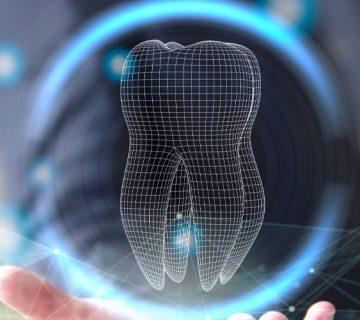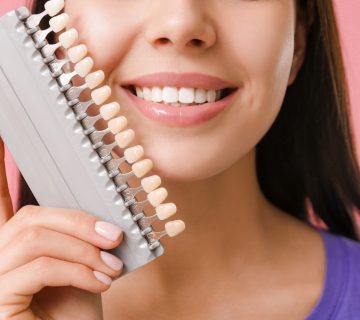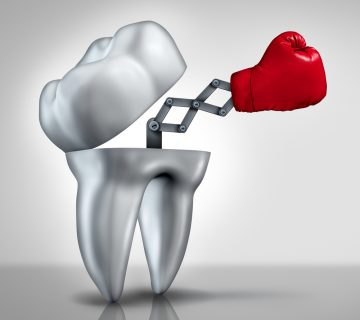Best Foods For Good Teeth Health
Best Foods for Healthy Teeth
Apples
An apple a day could keep the cavities away! Chewing apples and other crunchy, high-fiber fruits can scrub away plaque from teeth. As a bonus, this fruit is full of vitamins and minerals and makes an easy snack.
Water with Fluoride
Drinking water with fluoride is essential for the health of your child’s teeth as early as birth. Almost all drinking water contains fluoride, but some bottled varieties do not. It is always a good idea to check to make sure.
Eggs
Eggs are an excellent source of calcium, protein, and vitamin D, which are important minerals for oral health. Vitamin D is needed to absorb calcium, which builds and maintains strong, healthy teeth.
Milk, Cheese, and Yogurt
Milk, cheese, and yogurt are rich in calcium, casein, and phosphorus, which can protect tooth enamel. The nutrients in milk products can neutralize some of the acid produced by plaque bacteria.
Celery and Carrots
Just like apples, these crunchy vegetables contain a lot of water and require a lot of chewing which can scrub tooth surfaces. The water and fiber in these vegetables balance the sugars and help clean teeth. Also, celery has fibrous strands, making this vegetable nature’s floss!
Broccoli and Green Leafy Vegetables
Thanks to their high level of vitamins and minerals, broccoli and green leafy vegetables can provide big benefits for oral health. The folic acid found in leafy greens such as spinach and kale is known to help improve the health of teeth and gums.
Nuts and Seeds
Nuts and seeds also make a great, mouth-friendly snack! Acids remove tooth enamel, and foods with high amounts of calcium and phosphorus, such as almonds, peanuts and cashews, can protect teeth by replenishing those minerals.
 Foods That can Cause Tooth Decay and Cavities
Foods That can Cause Tooth Decay and Cavities
Sugary Drinks
It’s no secret that too much sugar is damaging to your health and can cause cavities. Organisms feed on the sugar on your teeth and turn it into acid, which destroys tooth enamel and causes decay.
The acids and sugar found in carbonated soft drinks combine to cause tooth damage. Even sugar-free diet sodas can erode enamel with the acidic content. While non-carbonated sports drinks may seem like healthy options, they are still acidic and sugary.
Citrus Fruit and Juices
Citrus fruits are a source of Vitamin C and nutrients, and they are good for you in many ways. However, grapefruit and lemon, in particular, are highly acidic and can erode tooth enamel over time.
Juices, even those that claim to be 100% fruit juice, often contain high levels of sugar which can cause tooth damage. Drinking low-fat milk and water is recommended over juice.
Chewy Candy
Eating tons of sugar is bad for tooth health, and candy is full of it. It can cause cavities and get stuck in crevices in the tooth.
Extra chewy candies like taffy and caramels stick to teeth for a long time which can dissolve tooth enamel. Candies that are chewy, sugary and acidic, like sour candies, are the most damaging. Many people choose dried fruits as a healthy snack, but many dried fruits are also sticky and contain sugar. If children do eat sugary snacks, they should brush and rinse their teeth with water to clean the tooth surfaces and gums.
Chips, Bread, and Pasta
Starches made from white flour are simple carbohydrates. They break down into simple sugars in the body which can lead to tooth decay. Eating chips for a snack is not recommended, not only because they provide no nutritional value, but also because the starch in them can adhere to teeth.
Instead of bread and pasta made with white flour, opt for whole wheat options.
Healthy Habits to Continue During Children’s Dental Health Month
Dental health starts during infancy with your child’s first tooth. By teaching your child about healthy dental habits today, you can help prevent complicated dental conditions in the future.
1. Regular Dentist Visits
It is recommended that children be taken to a pediatric dentist at one year old or 6 months after the first tooth comes in, whichever comes first. Children should have fluoride applications at the dentist every six months.
According to the Centers for Disease Control and Prevention, almost 20% of children between the ages of two and 19 have cavities that have not been treated. Regular dentist visits, combined with a healthy diet, can lower your child’s chance of an undiagnosed cavity.
It is also important that children be weaned off bottle feeding by 12 months of age if possible to prevent “bottle rot.” Bottle rot occurs when a baby’s teeth start to decay due to long-term exposure to liquids containing sugar.
2. Flossing
Along with eating the right foods, it’s important to floss at least once per day. Flossing removes plaque from the areas between your teeth where your toothbrush can’t reach.
Once a child’s teeth start to fit tightly together, usually between the ages of 2 and 6, parents should begin to get their children into the habit of flossing daily. Children usually develop the dexterity and ability to floss on their own around the age of 10.
3. Brushing Teeth
The American Dental Association recommends brushing teeth at least twice per day to remove plaque. Your baby’s teeth need to be wiped clean after bottle feeding or nursing. Parents should use an infant toothbrush with a rice-sized amount of fluoride toothpaste starting at age 1. Children can increase fluoride toothpaste use between the ages of 3 to 5.
Trust Your Child’s Dental Health to PowerSmile Dental Centre
This month teach your child about the importance of healthy teeth and gums. Swap out the bad foods in your child’s diet for tooth-friendly options for healthy, pearly whites.
Your pediatrician is there to help your child stay happy and healthy. Regular appointments, as well as visits to your child’s pediatric dentist, can help ensure your child stays on the road to health.





